HealthCare, Mental Health and MedTech – Special Edition: Highlights from SXSW 2024
SXSW is an annual festival in Austin, Texas. Considered one of the world’s most important innovation festivals, it serves as a melting pot of creativity, bringing together individuals from across the globe to share ideas and collaborate.
The festival spans various domains, including technology, music, film, and more.
The 2024 edition of SXSW took place from March 8-16. This year’s festival featured an inspiring lineup of speakers and performers. Keynotes, panels, and workshops covered 24 diverse tracks, exploring topics such as artificial intelligence, creativity, climate change, and many more.
Healthcare and MedTech was one of them. Psychedelics was another, and topics such as tech advances and mental health were discussed in tracks such as Artificial Intelligence, Culture, Workplace, Startups, Tech Industry, and 2050. Click here to see a full list of the featured sessions.
Healthcare and mental health have become increasingly prominent in recent years at SXSW. This is partly due to the growing importance of these fields in our society.
As technology advances, it opens up new possibilities for improving healthcare and patient outcomes. Here are some highlights from this year:
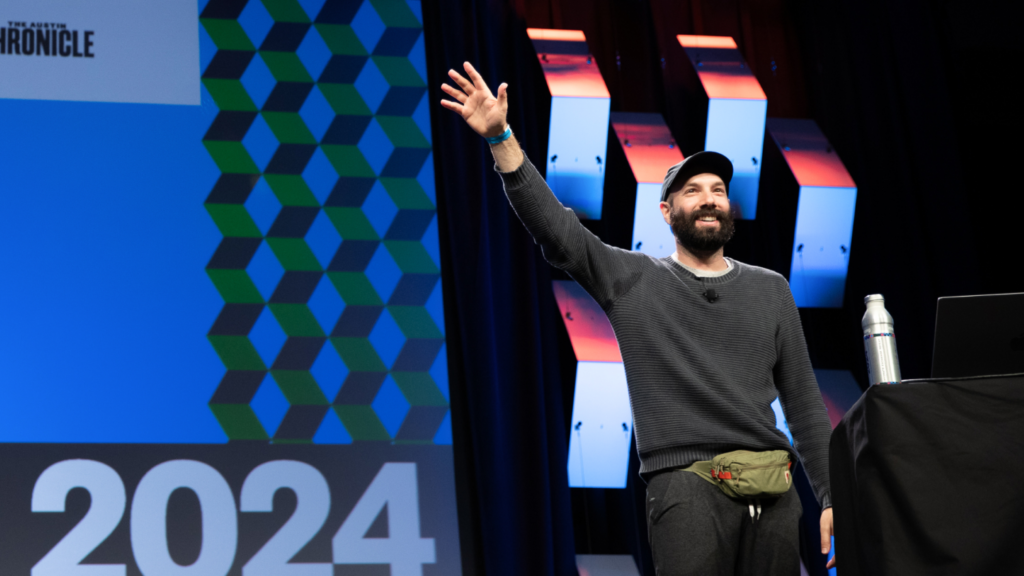
Defy Dementia:
This panel with Dr. Walter Greenleaf (MediaX, Stanford University), Dr. David Lindeman (PhD, Executive Director at CITRIS Health, UC Berkeley), Dr. Zayna Khayat (in-house health futurist with Deloitte Canada’s Healthcare and Life Sciences) and Dr. Allison Sekuler (President and Chief Scientist at the Centre for Aging + Brain Health Innovation) discussed the various types of technologies that can help all older adults live their best lives:
AI, VR/AR/XR, robotics, digital twins, artificial humans, predictive neuroscience.
Click here to hear the audio recording of this session
Will AI Replace Healthcare Workers? No, But It Will Turn Them Into Tech Workers:
This panel with Jim Swanson (EVP and Chief Information Officer at J&J), Aneesh Raman (VP and Head of the Opportunity Project at LinkedIn), Dr. Sunita Mishra (Chief Medical Officer for Amazon Health Services) and Claudia Lucchinetti (M.D. and dean of Dell Medical School and SVP for medical affairs at The University of Texas at Austin) explored the skills that will be top of mind, how medical education is evolving to focus on technology innovation, and what these new skills will mean for patients.
The idea was to provide the attendees with what they need to know to be successful in the future healthcare workforce and the tools that can help them accelerate health innovation through science & technology to benefit all patients.
Click here to hear the audio recording of this session.
AI, Health Care, and the Strange Future of Medicine:
This panel discussed the AI revolution in health care and how it will change the practice of medicine forever. Dr. Jesse Ehrenfeld, president of the American Medical Association and one of the nation’s leading experts on AI applications in health care, talks about the high stakes of AI development, mitigating risks for patients and doctors, and what matters in this new era of AI-enabled health care.
The panel also had Claire Novorol (Co-Founder and Chief Medical Officer at Ada Health), Alex Stinard (Regional Medical Director at Envision Healthcare), and Mark Sendak (MD and the Population Health & Data Science Lead at the Duke Institute for Health Innovation).
Click here to hear the audio recording of this session.

In one of the most celebrated talks at SXSW 2024, futurist Amy Webb also shared important insights. It’s worth watching her keynote and accessing her Trends in Tech 2024 report, which dedicates an entire section to healthcare and medicine.
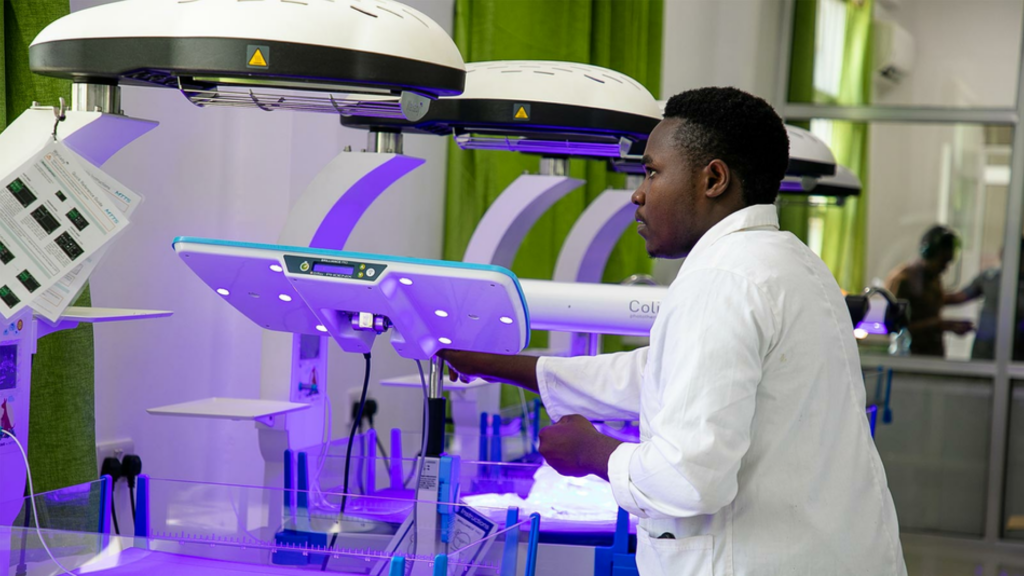
J&J’S HEALTHCARE INNOVATION LOUNGE
This year, Johnson & Johnson (J&J) has created The Healthcare Innovation Lounge and special programming at the Marriott Austin Downtown to celebrate the advancements in medicine from a patient-centered perspective.
The lounge served as a hub for attendees to connect, collaborate, try new solutions and technologies, and learn about the latest innovations in healthcare.
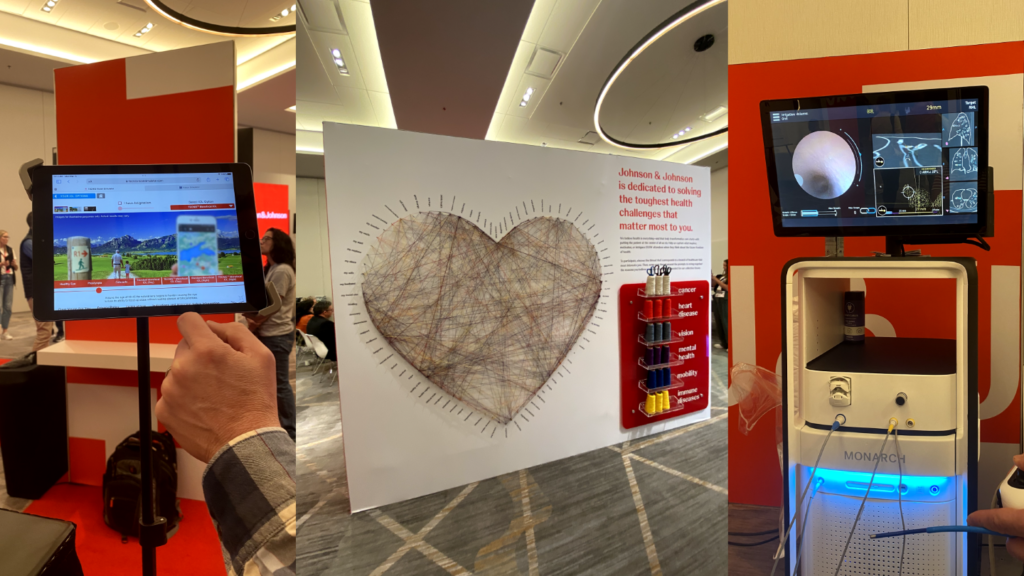
The J&J lounge offered attendees a unique and engaging experience. Instead of using traditional promoters, the lounge featured members of the project development teams who were able to provide personal insights and answer questions in detail.
The lounge also showcased stories of patients who have overcome adversity and technological solutions designed to improve patients’ quality of life.
It was designed to be a welcoming and inclusive space for all attendees, regardless of their background or experience.
Storytelling built upon patients’ stories
The lounge featured displays that told the stories of patients who have overcome difficult health challenges. These stories were designed to inspire and motivate attendees and to show them the real-world impact of the work that J&J is doing. Every board had a QR code.
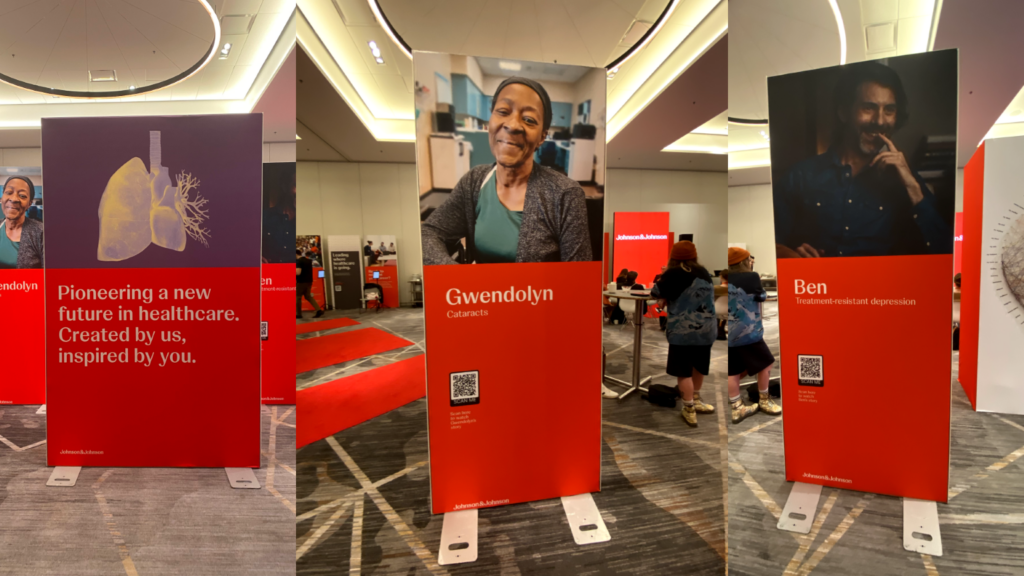
Hands-on demos
The lounge also offered some hands-on activities that allowed attendees to learn more about J&J’s work in healthcare. These activities included interactive demos, virtual reality experiences, and more.
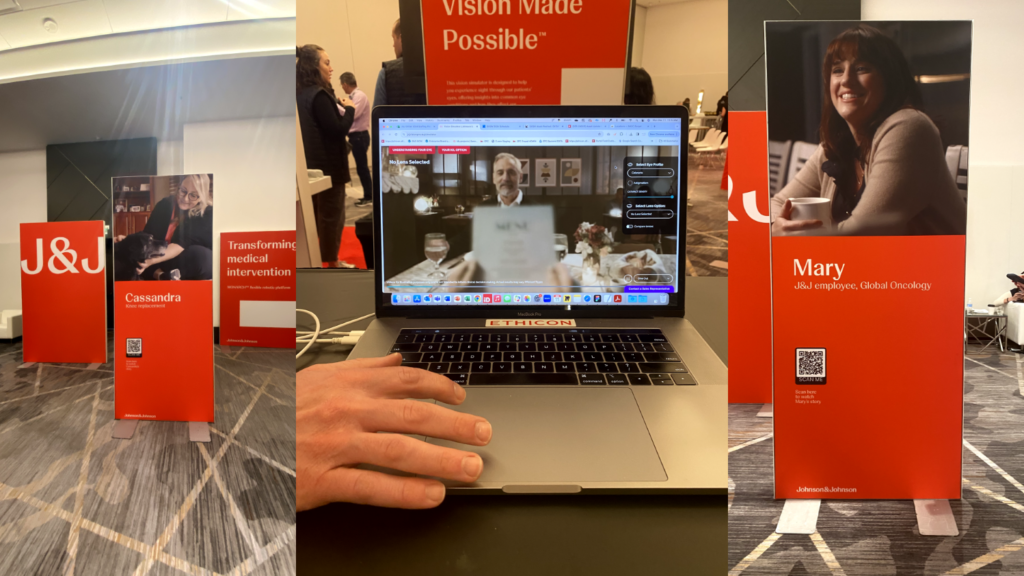
A mini-stage
The J&J Lounge also featured a mini stage for smaller presentations. One of the presentations that took place on the mini stage was about the treatment of patients with mental health issues in prisons.
The presentation, Viral Stories of Schizophrenia with Kody Green, was led by a former inmate who has schizophrenia.
He shared his journey, the realities and challenges of living with a serious mental illness, and how he found purpose in his personal experiences to become a patient advocate, public speaker, and content creator.
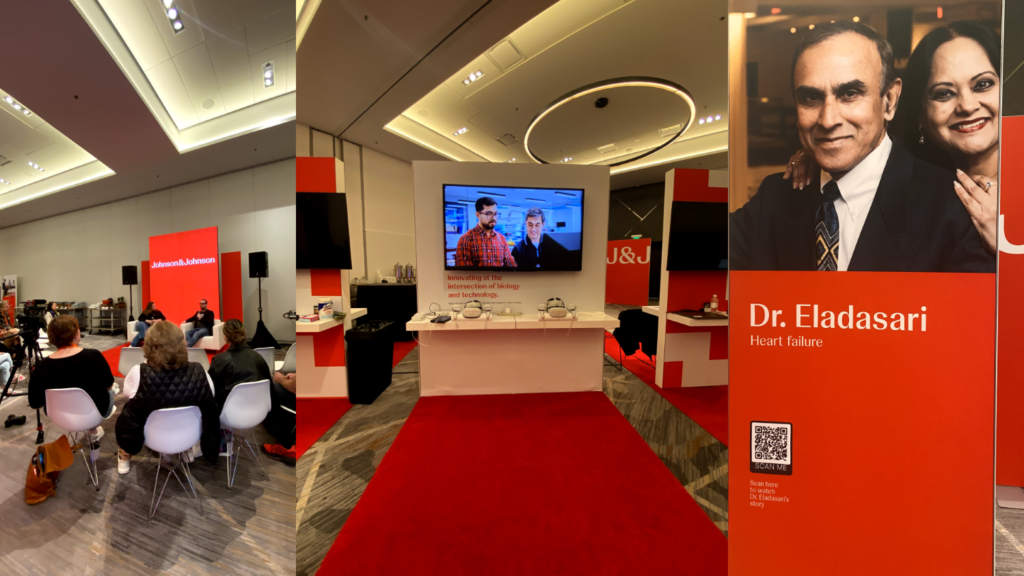
Visitors' Interactions
In this art installation, J&J invited the visitors to choose the thread corresponding to a healthcare brand that interests them. Then, wrap the thread around the prompts to string together why progress is so urgently needed.
A team of 25 members of J&J was present all the time in the lounge.
As J&J sponsored the Healthcare & Medtech Track, the brand was projected during the sessions.
Why is this significant?
The company seems committed to sharing its advancements and patient-centered approach with a broader audience from all innovation sectors.
They aim to create interesting conversations around topics that involve the future of healthcare, with strong connections to sectors such as technology, talent development, and artificial intelligence.
J&J’s participation highlights the important discussions around the shortage of physicians, the advancements of AI, its dangers and limitations, and many other topics, with influential stakeholders like Microsoft, Meta, Amazon, LinkedIn, consultancies, startups, universities, investors, and others present.
Key Takeaways:
our cut ABBOVE
We saw
SXSW became a hub for conversations on healthcare’s future.
Topics like the AI revolution in medicine, the interplay of tech and healthcare workers, and patient-centered approaches dominated.
J&J’s Healthcare Innovation Lounge was a standout, inviting collaboration and showcasing patient stories and groundbreaking solutions.
We learned that
Healthcare innovation isn’t just about technology. It’s about placing patients at the center, empowering healthcare workers with new tools, and driving collaboration between tech and medical sectors.
J&J demonstrated this through their focus on storytelling and their cross-sector engagement.
This encourages us
to reimagine healthcare marketing as patient stories become vital tools.
To embrace technology as a partner and seek collaborations with innovators outside traditional healthcare channels.
Triggers for innovating
How might we shift healthcare marketing budgets to prioritize more experiential and immersive events like the J&J lounge at SXSW?
How can we incorporate patient stories more powerfully in our marketing campaigns?
What if pharma companies were leaders in developing ethical frameworks for using AI in healthcare?
How can we better educate patients and healthcare professionals about new tech-based solutions?
What if we viewed prescription medications as just one part of a holistic tech-enabled treatment plan?
How can we better educate healthcare professionals about integrating new technologies and patient-centered approaches into their established practices?
What if we partnered with tech startups to develop patient-centric tools?
ABBOVE TEAM